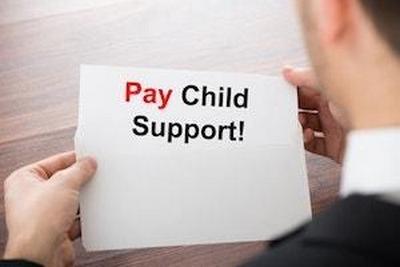Free Initial Consultations
 630-580-6373
630-580-6373With offices in Naperville, Joliet, Wheaton, Plainfield & Chicago
 A surprising number of men end up paying child support for children who are not their own, biologically speaking. Establishing paternity has important legal ramifications. It is important that you move quickly and efficiently as there are important determinations for a father who wishes to challenge the paternity of a child.
A surprising number of men end up paying child support for children who are not their own, biologically speaking. Establishing paternity has important legal ramifications. It is important that you move quickly and efficiently as there are important determinations for a father who wishes to challenge the paternity of a child.
Establishing Paternity
Paternity is phrase used to describe a legal relationship between a father and his child. In cases where parents were not married at the time the child was born, the father in the eyes of the court is regarded as the alleged father. An alleged father has not yet established a legal relationship with his child. The alleged father cannot be named on the child’s birth certificate until legal paternity has been established.
 The way in which child support is calculated in Illinois is about to undergo a massive evolution this July 2017. For the first time in Illinois, the state is moving towards an “income sharing” model—a model that is used by various other states.
The way in which child support is calculated in Illinois is about to undergo a massive evolution this July 2017. For the first time in Illinois, the state is moving towards an “income sharing” model—a model that is used by various other states.
Under current Illinois law, the method of calculating child support is to use a fixed percentage of a nonresidential parent's net income. For example, if there is one child in a household, the court would calculate 20 percent of his or her parent's net income to determine what he or she is obligated to pay for child support.
How Are the Calculations Different?
Instead of using a fixed percentage, the law directs courts to consider variables outside of a parent's net income. Those variables include:
 There are many different ways one can be victimized by abuse in a relationship. For some, the evidence of the abuse is worn on their body. Unexplained bruises, broken bones, and marks on the skin can be a tell tale indicator that someone is physically abused. However, when the abuse is emotional, it does not leave the same kinds of evidence. Moreover, when emotional abuse is the reason for a divorce, providing evidence of that abuse can present unique legal challenges.
There are many different ways one can be victimized by abuse in a relationship. For some, the evidence of the abuse is worn on their body. Unexplained bruises, broken bones, and marks on the skin can be a tell tale indicator that someone is physically abused. However, when the abuse is emotional, it does not leave the same kinds of evidence. Moreover, when emotional abuse is the reason for a divorce, providing evidence of that abuse can present unique legal challenges.
Emotional abuse can affect your life in several different ways. Abuse can cause you to miss days at work or be less focused, which therefore results in the minimization of your earning capability. It can cause you to be distracted at times when losing focus is dangerous—i.e. when you are driving. Emotional abuse is no small matter, even if it does not leave physical marks.
Emotional Abuse and Child Custody
 It is common for people to remain plugged into their electronic devices for much of their day. Whether it is sharing pictures of their children, their dinner, or pets, posting images online has become a part of our daily lives. Moreover, those posts can also become part of a divorce proceeding.
It is common for people to remain plugged into their electronic devices for much of their day. Whether it is sharing pictures of their children, their dinner, or pets, posting images online has become a part of our daily lives. Moreover, those posts can also become part of a divorce proceeding.
What Kind of Communications are Admissible in a Divorce?
The communications you have can become admissible at trial. For example, an email or a text message can be admissible in court, and certain circumstances can even be subpoenaed. Social media posts can be used in a divorce proceeding as well. If one party fails to disclose a promotion at work, or boasts about being able to hide assets and then gloats about it on social media, those posts can become part of the trial.
Will Blocking My Spouse Help?
Blocking your spouse may help; however, it is not a foolproof way of preventing him or her from being able to use a social media post against you. A spouse who has been blocked still has access to your friends' social media posts. If one spouse goes on an expensive trip with a friend, and that friend posts pictures of the trip, then that post can be used at trial to prove that one spouse is not honest about his or her financial situation.
 When you receive word that you are being investigated for child abuse allegations by the Illinois Department of Children and Family Services (DCFS), it can seem like your world has been turned on its head. While there are plenty of horrific cases handled by DCFS, there are also many that are unfounded or simply a misunderstanding. If your matter falls within one of those categories, you are no doubt overwhelmed and distraught. Fortunately, you can fight the allegations and it is best to do so with an Illinois DCFS hearings lawyer by your side.
When you receive word that you are being investigated for child abuse allegations by the Illinois Department of Children and Family Services (DCFS), it can seem like your world has been turned on its head. While there are plenty of horrific cases handled by DCFS, there are also many that are unfounded or simply a misunderstanding. If your matter falls within one of those categories, you are no doubt overwhelmed and distraught. Fortunately, you can fight the allegations and it is best to do so with an Illinois DCFS hearings lawyer by your side.
Call-in to the DCFS Hotline
Investigations into child abuse and/or neglect start with a call into the State Central Register Hotline, a call center in Springfield, IL, that is dedicated to dealing with child abuse situations. An employee for DCFS answers the call and takes information from the caller, in an attempt to determine whether the facts support the possibility of harm or risk of harm to a child. Anyone can make a call to the Hotline, including family members, friends, teachers, neighbors, and other individuals. After the DCFS staff member completes the call and necessary paperwork, he or she forwards the information to the agency county office where the child resides to officially initiate the investigation.
 Chances are you and your spouse engaged in the tradition of gift giving between yourselves and with other members of the family. Whether for birthdays, holidays, anniversaries, or other special occasions, presents are a way of showing love, appreciation, and gratitude. Now that you are considering divorce, what happens to these mementos that—in some cases—might be worth a lot of money?
Chances are you and your spouse engaged in the tradition of gift giving between yourselves and with other members of the family. Whether for birthdays, holidays, anniversaries, or other special occasions, presents are a way of showing love, appreciation, and gratitude. Now that you are considering divorce, what happens to these mementos that—in some cases—might be worth a lot of money?
You might already be aware of how Illinois divorce law treats marital and non-marital assets for purposes of property distribution. However, the treatment of gifts is not so clear-cut. An attorney with experience in property division matters can tell you more about specific items, but here are some general rules on how the law applies.
Legal Presumption as Non-Marital Property
The general rule is that, when one spouse receives a gift, the item is presumed to be non-marital. For example, a present you receive from a person outside the marriage for a birthday, retirement, or as a thank you would be yours to keep if you divorce. In addition, a gift from a child for Mother’s or Father’s Day is clearly for one person—not the couple. These types of gifts will not be considered by a court when making a property distribution of marital property.
 As if going through divorce proceedings is not stressful enough, you may also be receiving threats of foreclosure by a financial institution that holds the mortgage on your home. This type of “insult to injury” situation is actually relatively common, so you do have options to address foreclosure proceedings under state law.
As if going through divorce proceedings is not stressful enough, you may also be receiving threats of foreclosure by a financial institution that holds the mortgage on your home. This type of “insult to injury” situation is actually relatively common, so you do have options to address foreclosure proceedings under state law.
The key is to join forces with your partner as much as possible, stay in close communication with the lender, and work with an Illinois divorce attorney to ensure protection of your interests—both in the divorce case and through the foreclosure process.
Temporary Injunction
If the lender has already initiated foreclosure proceedings, you can sue to bring the entity into the divorce as a third party. The bank has a financial interest in the proceedings, and the court has jurisdiction over the assets, so a third party action is property. Once the lender is before the court, you can request that the judge issue a temporary injunction order prohibiting the bank from proceeding on the foreclosure until the order is released.
 Couples do not just wake up one day and decide to divorce. There are indications that spouses are growing apart and that dissolution of the marriage is inevitable, which usually develop in the weeks and months before filing divorce paperwork. During this period of irretrievable breakdown, one spouse may be tempted to destroy or waste marital assets—often out of spite and with the view that destruction of property is preferable to letting the other person have it.
Couples do not just wake up one day and decide to divorce. There are indications that spouses are growing apart and that dissolution of the marriage is inevitable, which usually develop in the weeks and months before filing divorce paperwork. During this period of irretrievable breakdown, one spouse may be tempted to destroy or waste marital assets—often out of spite and with the view that destruction of property is preferable to letting the other person have it.
Dissipation of marital assets is a serious matter, so you should discuss your situation with an Illinois divorce lawyer right away if you suspect wrongdoing.
Legal Definition of Dissipation of Assets
Dissipation occurs when one spouse uses property for a purpose unrelated to the marital relationship and at a time that the marriage is irretrievably breaking down. The period of breakdown is not typically a single moment, but rather a series of developments that indicate the marriage is coming to an end. The unrelated purpose element is a case-by-case analysis, but examples may be:
 When parents and their children have lived in different states throughout the duration of the marriage, extremely complicated issues arise regarding child custody in a divorce case. In Illinois, the key for handling disputes is jurisdiction—a court’s authority differs when handling divorce matters versus child custody battles. Jurisdiction may be proper over one aspect of the case, but not appropriate for the other. Because of the highly complex nature of the legal issues involved, it is wise to retain an Illinois divorce attorney with experience in interstate child custody issues.
When parents and their children have lived in different states throughout the duration of the marriage, extremely complicated issues arise regarding child custody in a divorce case. In Illinois, the key for handling disputes is jurisdiction—a court’s authority differs when handling divorce matters versus child custody battles. Jurisdiction may be proper over one aspect of the case, but not appropriate for the other. Because of the highly complex nature of the legal issues involved, it is wise to retain an Illinois divorce attorney with experience in interstate child custody issues.
Divorce Jurisdiction
Under the Illinois Marriage and Dissolution of Marriage Act, a court has jurisdiction to enter an order of dissolution of marriage so long as one of the spouses was a resident of the state when filing for divorce. In addition, jurisdiction is proper if one of the spouses was stationed in Illinois as a member of the armed services. The spouse must be a resident or have military presence in the state for at least 90 days prior to initiating divorce proceedings. Once the filing spouse meets the 90 day requirement and submits the petition for divorce, the case will proceed in Illinois regardless of where the other spouse lives.
 Congratulations are in order if you have recently gotten engaged and are embarking on the planning phase of your upcoming wedding. As you are preparing the guest list, booking a venue, and making arrangements for the reception, the legal aspects of your nuptials may be the furthest from your mind. However, there are some important tasks you need to address as your wedding day approaches—matters that can ensure you are getting your marriage off on the right foot. Discuss your specific circumstances with an Illinois prenuptial agreement attorney, and consider these “must-do’s” before the big day.
Congratulations are in order if you have recently gotten engaged and are embarking on the planning phase of your upcoming wedding. As you are preparing the guest list, booking a venue, and making arrangements for the reception, the legal aspects of your nuptials may be the furthest from your mind. However, there are some important tasks you need to address as your wedding day approaches—matters that can ensure you are getting your marriage off on the right foot. Discuss your specific circumstances with an Illinois prenuptial agreement attorney, and consider these “must-do’s” before the big day.
Apply for Your Marriage License
Before Illinois will recognize your marriage as legal, you will need to secure a marriage license from the county clerk’s office where you or your soon-to-be-spouse live. You must both appear before the clerk in order to obtain the license, and bring proof that you are 18 years or older; a driver’s license, state-issued ID, or birth certificate will be sufficient. If either of you were married before, you will need to supply the information on why and when the previous marriage ended (death, divorce, etc.).
